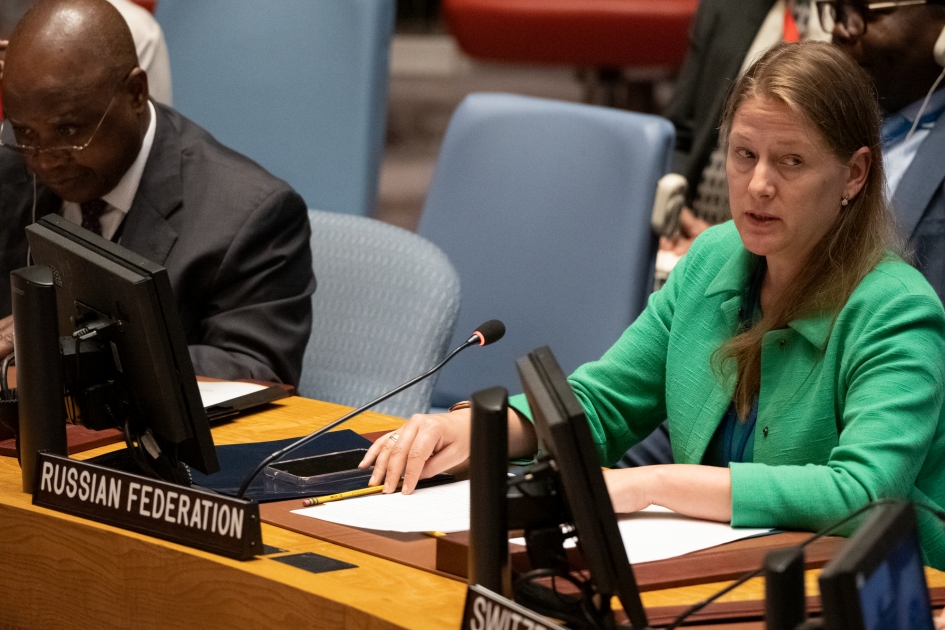Statement by Deputy Permanent Representative Maria Zabolotskaya at UNSC briefing on maritime security in the Gulf of Guinea
Mme.President,
We thank Assistant Secretary-General, Ms. Martha Pobee; President of the ECCAS Commission, Mr. Gilberto da Piedade Verissimo; President of the ECOWAS Commission, Dr. Omar Alieu Touray; and Executive Secretary of the Gulf of Guinea Commission, Mr. Jose Mba Abeso, for briefing us on the situation with maritime security in the Gulf of Guinea.
This meeting clearly demonstrates that when we focus on emerging threats and challenges we must not look past the old problems, such as piracy and armed robbery at sea.
“21 century flibustiers” are well-organized and well-equipped. Their actions are audacious, and their tactic sophisticated. In the Gulf of Guinea they attack ships, first of all to take hostages for ransom. This poses a serious threat to the lives and health of ship crews, affects safety of navigation, international trade and economic prosperity of coastal states. In general, piracy in the region looks similarly to a well-established criminal business.
Mme.President,
Attacks on ships in the Gulf of Guinea have some specific features. Most of them take place at a short distance from the shore, often in territorial waters of coastal states. In such cases, this is not piracy, which by definition can take place only on the high seas. This is armed robbery at sea. If we qualify it correctly in legal terms, it helps us to determine what response measures may be the most effective.
Speaking of preventing and countering armed robbery at sea, it is the coastal states and leading regional associations that must play the leading role in articulating the response. We welcome related efforts and initiatives, including those aimed at establishing mechanisms for effective coordination.
In particular, we assign great significance to the Gulf of Guinea Maritime Collaboration Forum which was launched in 2021 and serves as an informal platform for expert coordination of anti-piracy initiatives in water areas.
Speaking of the global community, it should focus on providing assistance to coastal states in strengthening the potential of coastal guards, namely improve their technical equipment, help to organize joint patrols and regular exchange of operative data.
Such assistance should be provided upon request of interested states, take into account their national approaches, priorities and specificities. We believe the United Nations can help coordinate such efforts and help to mobilize the required financial resources.
Russia enhances its contribution to countering piracy and armed robbery at sea off Africa’s Western coast. Russia's annual voluntary contribution to the Fund of the UNODC Global Maritime Crime Programme is used to render technical assistance to states in the region - Cameroon, Congo, Equatorial Guinea, Gabon, Ghana, Nigeria, and São Tome and Principe. The focus is on building capacity of national maritime security structures.
In view of our active assistance to the states of the region, we would be interested in joining the activities of the Gulf of Guinea Maritime Collaboration Forum. We look forward to receiving an invitation from the Nigerian presidency. We are ready to share our vast experience in maritime security.
We must be mindful that we can be effective in countering piracy and ensuring maritime security in the Gulf of Guinea only if we act together and coordinate efforts of the international community. We are determined to continue looking for the most effective solutions, including within the framework of the Security Council.
Given that piracy and armed robbery at sea are often linked to other criminal activities, we continue to advocate for establishing a specialized mechanism under the auspices of the United Nations to coordinate the whole spectrum of issues related to combating maritime crime.
Thank you.
